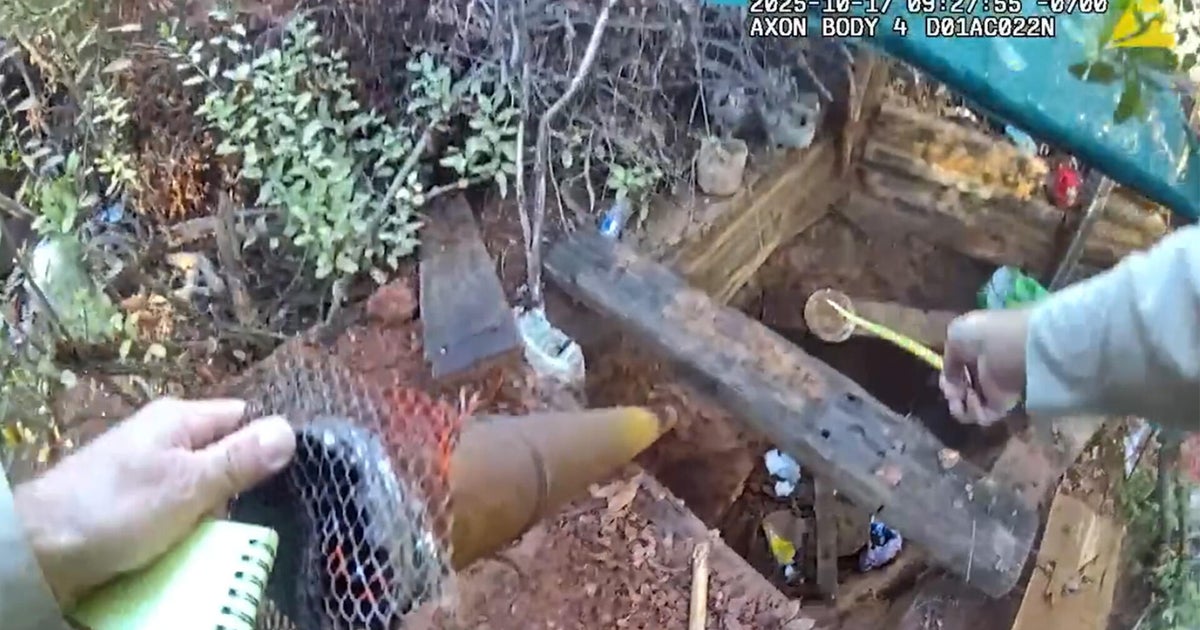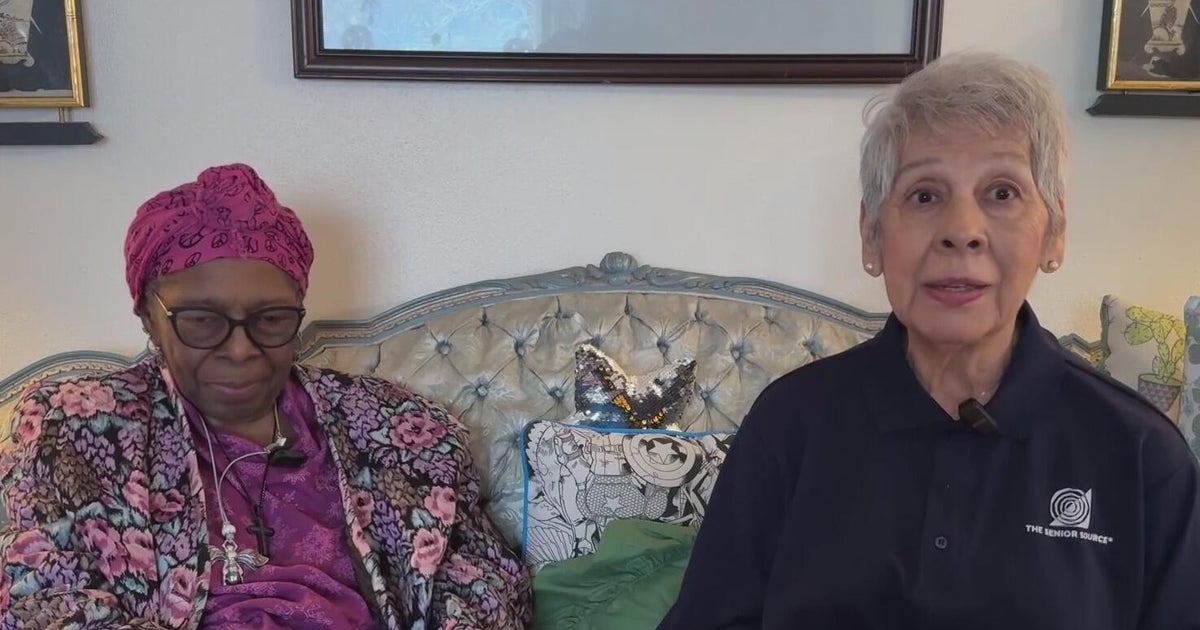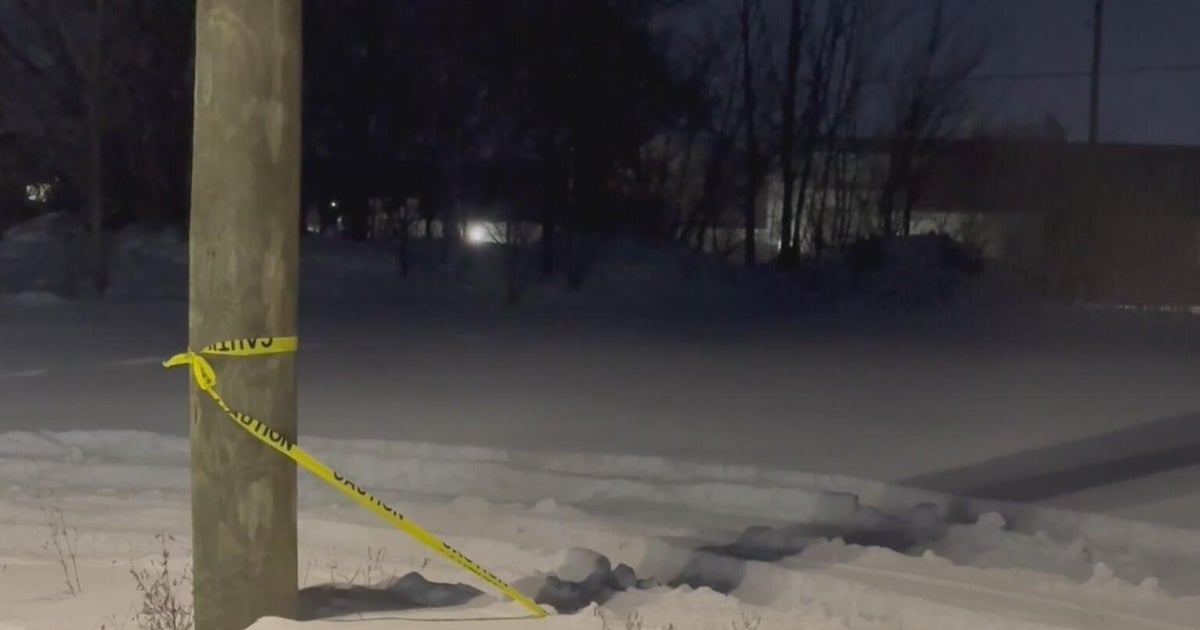Nonprofit builds tiny homes for trans women living on the streets: "We're doing it out loud and proud"
One in five transgender Americans has been homeless at one time or another. A Tennessee nonprofit is tackling the problem, giving permanent housing to some of those who are most at risk — one tiny home at a time.
Kayla Gore is a Tennessee resident who spends every Thursday at a Memphis park, handing out hot meals and hope to people living on the streets.
Gore herself was homeless 10 years ago.
"Other people who were experiencing homelessness kind of showed me how to stay safe, because I'm a transgender woman, I'm Black," she told CBS News' Adriana Diaz. "They taught me how to sleep on top of buildings, how to hide my clothes during the day."
Being cared for by the community is what informs her work now at My Sistah's House, an organization in her hometown of Memphis that provides emergency housing to transgender people in need.
"A lot of people will not understand, like, the experiences of trans people... not having access to jobs in the first place," Gore said. "We have access to menial jobs, like in a warehouse. Tennessee is an at-will state, so you can be fired for any reason or no reason."
She believes trans people face higher discrimination at work, which leads to job loss — but there is another issue.
"A lot of folks don't have addresses where they can actually put on an application to get a job," she said.
People without jobs are unable to get a house or rent an apartment, but stable employment is hard to come by for candidates who do not have an address to show where they live.
"It makes no sense," Gore said.
Trans people are more likely to live in temporary housing — hotels, rooms for rent or staying with friends and family — situations which can quickly decline to homelessness.
The fact is especially true for Black trans women, more than half of whom have been homeless.
Gore's work providing sanctuary for trans adults through My Sistah's House, comes amid the backdrop of a recent surge in legislation targeting trans youth. More than 90 anti-trans bills have been proposed in 34 states this year, many targeting health care access and participation in school sports.
And when COVID-19 hit, Gore saw demand for housing at her organization triple.
"People weren't able to work, people were being kicked out of their places," Gore said. "And they were coming here, and we didn't have the capacity to house people."
That was when the tiny homes project was born, with a mission to build 20 tiny homes for trans women of color to own — meaning they never have to rent again.
Through crowdfunding and donations, the nonprofit raised almost $600,000 to purchase land and break ground.
And almost a year since the project began, it found its first homeowner. Alexis Jackson was once homeless after a fallout with her family.
Now, her 400-square-foot house is her sanctuary.
"I was in the depths of alcoholism, financial struggle," Jackson said. "I don't ever wanna go back to where I was at."
Jackson said the living room space and the way the ceiling was set up were her favorite parts of her new home.
Gore said that providing homes for trans individuals gives them safety and security.
"A vast majority of the trans murders are associated with people who are experiencing homelessness," she said.
Gore added with a laugh that it made her feel like Harriet Tubman.
"I feel like I'm giving people a pathway to success and life," she said. "Harriet Tubman had to do her work in secrecy. And we're doing it out loud and proud."



